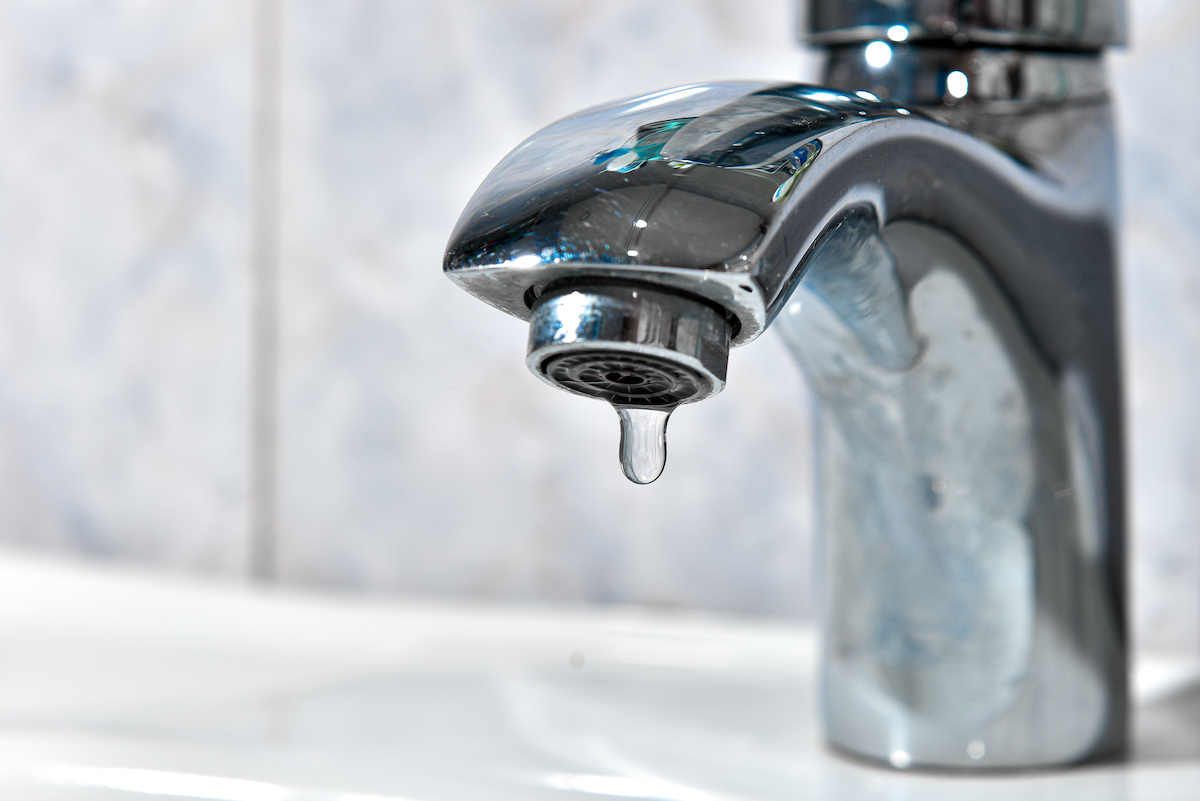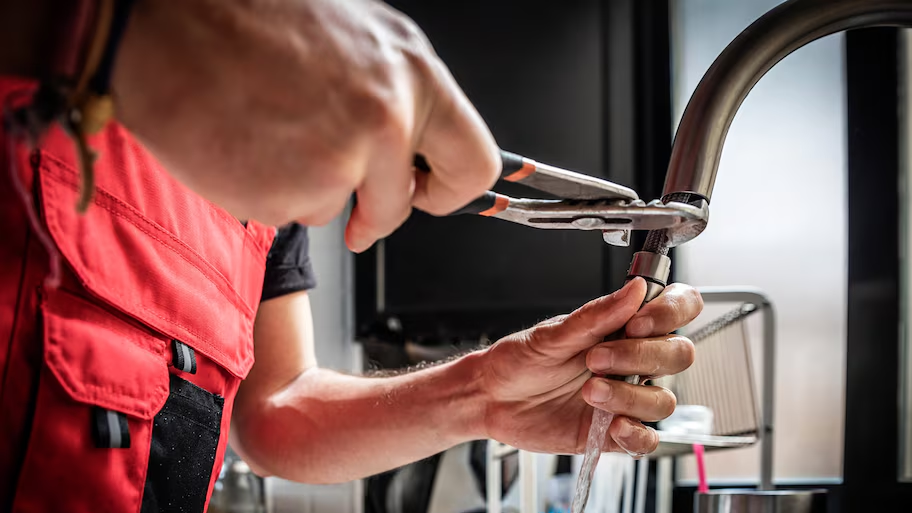What are your beliefs on Leaky Faucets: Why They Happen & What to Do About Them?

Dripping faucets may appear like a small inconvenience, but their effect exceeds simply the annoyance of the sound. From drainage to incurring unneeded monetary costs and health threats, disregarding a trickling tap can cause numerous effects. In this article, we'll look into why it's crucial to address this usual household problem without delay and successfully.
Waste of Water
Ecological Influence
Trickling taps contribute significantly to water wastage. According to the Epa (EPA), a solitary tap leaking at one drip per second can waste more than 3,000 gallons of water per year. This not just pressures water sources yet likewise impacts environments and wild animals depending on them.
Step-by-Step Overview to Taking Care Of a Dripping Faucet
Tools Required
Prior to trying to take care of a leaking faucet, gather the essential devices, including an adjustable wrench, screwdrivers, replacement components (such as washing machines or cartridges), and plumber's tape.
Typical Faucet Issues and Their Solutions
Recognize the sort of faucet and the particular issue creating the drip. Usual issues consist of damaged washers, rusty shutoff seats, or malfunctioning O-rings. Refer to manufacturer guidelines or on the internet tutorials for step-by-step advice on repair services.
Financial Expenses
Increased Water Costs
Beyond the ecological effect, dripping taps can inflate water costs significantly. The built up wastefulness gradually translates right into higher energy expenses, which can have been prevented with prompt repairs.
Potential Building Damage
Furthermore, prolonged leaking can lead to harm to fixtures and surface areas surrounding the tap. Water accumulation can create staining, deterioration, and even structural concerns if left unattended, causing extra repair service costs.
Health and wellness Problems
Mold and Mold Development
The constant visibility of moisture from a leaking tap creates a suitable environment for mold and mildew development. These fungis not only jeopardize interior air top quality but likewise pose health and wellness dangers, specifically for individuals with breathing problems or allergies.
Waterborne Illness
Stationary water in trickling faucets can end up being a breeding place for microorganisms and various other pathogens, boosting the threat of waterborne conditions. Contaminants such as Legionella bacteria flourish in stationary water, potentially resulting in severe ailments when consumed or breathed in.
DIY vs. Professional Repair
Advantages and disadvantages of Do It Yourself Fixing
While some might try to deal with a leaking tap themselves, do it yourself repair services feature their very own collection of difficulties. Without appropriate understanding and tools, DIY attempts can intensify the issue or lead to incomplete repair work, extending the trouble.
Benefits of Working With an Expert Plumber
Working with an expert plumber makes sure that the underlying root cause of the dripping tap is resolved effectively. Plumbers have the proficiency and equipment to identify and repair tap problems effectively, saving time and minimizing the threat of additional damages.
Environmental Responsibility
Specific Payment to Conservation
Taking obligation for taking care of leaking faucets aligns with broader initiatives towards water conservation and ecological sustainability. Every person's actions jointly make a substantial effect on preserving priceless resources.
Sustainable Living Practices
By prioritizing punctual repair work and adopting water-saving behaviors, individuals add to sustainable living methods that benefit both existing and future generations.
Preventive Measures
Normal Upkeep Tips
To prevent trickling faucets, execute routine upkeep such as cleaning up aerators, inspecting for leaks, and changing worn-out components promptly. In addition, consider mounting water-saving devices or updating to more effective fixtures.
Value of Prompt Repairs
Attending to dripping faucets as quickly as they're seen stops more water waste and possible damages, eventually conserving both water and cash in the long run.
Influence On Home Worth
Perception of Well-Maintained Home
Keeping a residential property in good condition, consisting of dealing with maintenance issues like leaking taps, enhances its viewed worth and charm among potential purchasers or lessees.
Influence on Resale Worth
Features with well-maintained plumbing fixtures, including faucets, command greater resale worths in the property market. Resolving trickling taps can contribute to a positive impression during residential property examinations and settlements.
Verdict
Resolving a trickling tap surpasses plain ease; it's an essential action towards preserving water, lowering economic prices, and guarding wellness and residential property. Whether with DIY repair work or professional assistance, taking action to fix trickling taps is a little yet impactful method to promote responsible stewardship of sources and add to a healthier, much more lasting future.
Why Are My Faucets Dripping (And Can I Fix it Myself)?
Causes of a Dripping or Leaking Faucet
Whether you’re hearing drops of water falling and hitting a sink, or noticing water ooze out from the base of the spout, you shouldn’t ignore a dripping or leaking faucet. And, the good news is, sometimes you can fix the problem yourself.
In this article, we’ll review a few common causes of dripping and leaky. We’ll also walk you through some basic ways to find the problem and handle it without calling anyone — and let you know when to call in a pro.
But, no matter what the cause, or whether you can handle it on your own, the sooner you address it, the better.
Each drip may be a tiny amount of water. But, they all add up quickly. According to the U.S. Geological Survey, one faucet losing one drop every 20 seconds — five a minute — wastes around a liter of water every day, and 173 gallons a year.
Add in more than one in your house, and it’s a lot of water to waste. So, we’ll help you get to the bottom of things quickly.
Four Reasons Your Faucet May Be Dripping
Aerator is Damaged or Unseated Valve Seat is Corroded O Ring is Loose or Worn Out Part of the Assembly is Loose Aerator is Damaged or Unseated
If you unscrew the end of your faucet, you’ll find the aerator. It’s the little stem piece with a screen on it that shuts off the water circulation.
If it’s damaged, or if it’s not sitting right, it will allow water to pass through.
Valve Seat is Corroded
Next is the valve seat, which is connected to the washer. If the washer wasn’t in place correctly, then it could have ground against the seat. Over time, this damages the valve seat.
The problem could also be corrosion: Over time, the part has worn out, and it’s now allowing water to pass through.
O Ring is Loose or Worn Out
Since the o ring is only a small rubber gasket, it’s a common reason why the faucet is dripping. You’ll find it at the base of the faucet, and it’s there to keep water from coming out where it’s not supposed to.
However, it’s common for the o ring to wear out over time. When it does, you’ll notice a drip.
Part of the Assembly is Loose
So far, we’ve looked at a few small, specific parts. But, the problem could be anywhere in the assembly if something’s out of place.
Even if a part isn’t damaged, over time, it may have become loose or dislodged. It could be the parts we mentioned, or the aerator at the tip of the faucet, the stem itself,
Can I Fix a Leaky Faucet Myself?
Depending on the problem, and how handy you are, there’s a chance you can fix a leaky faucet without calling a professional. But, you do run the risk of making the problem worse.
If it’s a small drip, you can certainly try a few troubleshooting tactics. We’ll walk you through them in a moment.
But, no matter what, your first step should be shutting off the water coming into the faucet. You should find a shutoff valve under the sink on the pipes leading to it. Turn each one clockwise until they close tightly.
Next, make sure you have the right tools for whatever you’re attempting. It’s tempting to make do with what you have. But, you need the right ones for a reason: You’re often dealing with small parts that can break if you handle them carelessly.
If you’re feeling confident, here are some places to start.
Items Near the Tip of the Faucet
A few of the parts we mentioned — particularly the valve seat and washer — are located at the tip of the faucet where the water comes out. They’re easy to access, making it a good place to start.
Check the O Ring
To check the o ring, you’ll need to take off the spout at the base. It’s easiest on kitchen sinks with long spouts, versus the smaller, bulkier base on most bathroom sinks.
Either way, this can be tricky, so do it carefully and don’t force anything. If it’s not coming right off, you’re much better off calling in a pro than possibly breaking something.
For a kitchen sink, there’s usually a nut or coupling assembly at the base of the spout. These often slide off easily without using any tools.
Once you’ve disassembled those parts, gently but forcefully twist off the spout.
Then, you can see the o rings. There should be two of the rubber gaskets on the base. If they look worn or damaged, replace them, and see if that solves the problem.

As an avid person who reads about How to Fix a Dripping or Leaky Faucet , I think sharing that portion was worthwhile. Do you know about someone else who is occupied with the topic? Please feel free to share it. I am grateful for your time. Return soon.